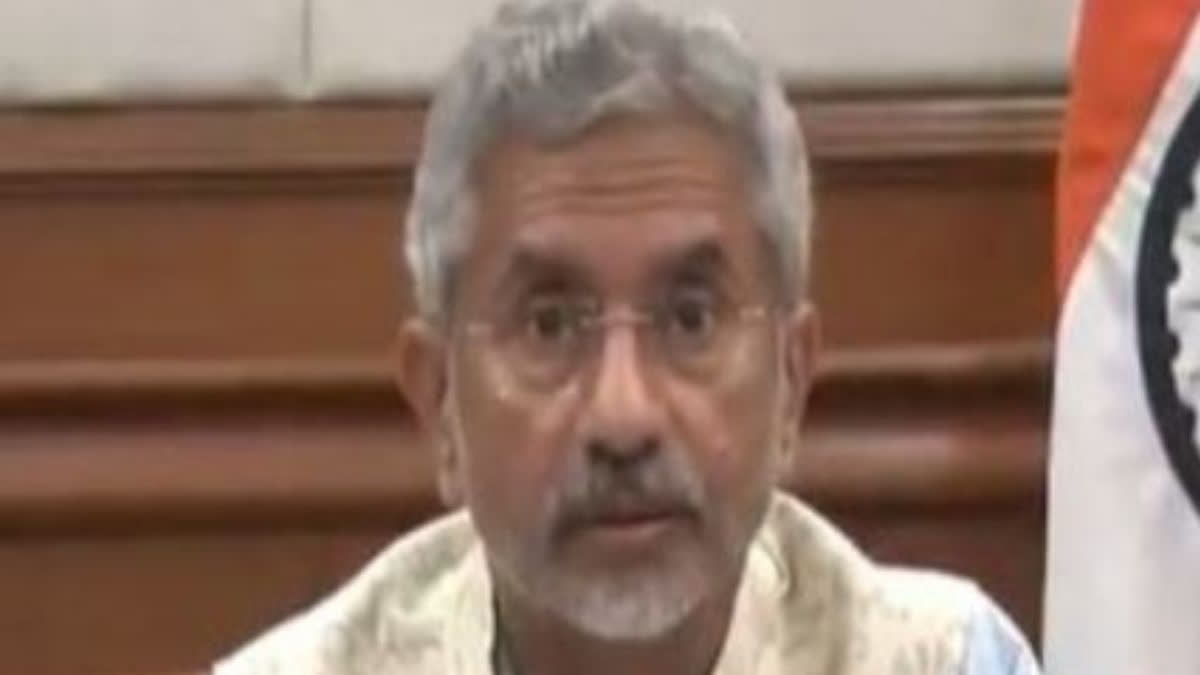New Delhi: Taking a dig at China, India’s External Affairs Minister Dr Jaishankar on Friday said that when nations disregard their legal obligations or violate long-standing agreements, the damage to trust and confidence is immense. He noted that it is essential for the international community to take the long view of cooperation, rather than a tactical one of interests.
Addressing the inaugural session of the 6th Indian Ocean Conference in Dhaka, Jaishankar said, “The requirement of simultaneously addressing the needs of the Indo-Pacific, the Indian Ocean, and its constituent regions is today the task before us”. He said that a significant shared concern through the Indian Ocean is that of unsustainable debt generated by unviable projects.
“There are lessons from the last two decades that we ignore at our peril. If we encourage opaque lending practices, exorbitant ventures, and price points that are unrelated to the market, these are bound to bite us back, sooner rather than later. Especially, when sovereign guarantees have been proffered, not always with due diligence. Many of us in the region are today confronting the consequences of our past choices. This is time to reflect and reform, not one to repeat and reiterate”, he said.
“These are not alternatives but self-supporting activities. Naturally, there are aspects of specificity; but equally, there are broad principles that apply to all. For example, the importance of adhering to the law, observing norms, and respecting rules is a natural convergence point. It is not possible to build a stable international order without these prerequisites. This is especially so in a continent that has seen so much growth and so much change”, he added.
Jaishankar is on a three-nation tour to Bangladesh, Sweden, and Brussels. He landed in Dhaka on Thursday and held a bilateral with his Bangladesh counterpart and Prime Minister Sheikh Hasina. He is in Dhaka to participate in the 6th edition of the Indian Ocean Conference which is being attended by President of Mauritius Prithvirajsing Roopun, Vice President of Maldives Faisal Naseem, Prime Minister of Bangladesh Sheikh Hasina, and several ministers from across the world.
Further, Jaishankar noted that within the Indian Ocean, there is a need to recognize that there are distinct regions and ecosystems. “The Bay of Bengal is a very good example. The countries in this geography have their particular aspirations and agenda, as well as their respective pathways towards progress”, he said.
“We are members of the BIMSTEC, an organization that is increasingly coming into its own. Amongst ourselves, we are very cognizant of the challenges, we face in governance, modernization, and security. And we are confident of dealing with them through deeper cooperation and shared efforts. It is by nurturing such building blocks that we will make the Indian Ocean – indeed the Indo-Pacific – stronger and more resilient”, he underlined.
He reiterated that as nations of the Indian Ocean, “we are united in our interest in the maritime sphere. Here too, there is much that we who inhabit this ocean must reflect on. The era where maritime spaces would be secured by others is now behind us. With each passing day, this is increasingly our shared responsibility. We must discharge that, sharply aware that global good should not be sacrificed at the altar of any national dominance. To do so, we must put in place the bilateral, plurilateral, and regional tools and mechanisms to achieve our ends.”
Dr Jaishankar pointed out that connectivity is a particularly crucial issue for all of us while adding this is because the era of imperialism disrupted the natural linkages of the continent and created regional silos to serve its ends. In many cases, the hinterland was disadvantaged to the benefit of the coastal areas. Building back in the post-colonial era is a long, painful, and arduous task. It is still very much a work in progress. He said that for a nation like India, this means a land connection to South East Asia.
"And a multi-modal one to the Gulf and beyond. Central Asia offers its distinct challenges due to obstacles in between. Collectively, the more we work on facilitating smooth and effective connectivity, the better off we all are. And obviously, we need to respect sovereignty and territorial integrity while doing so. Let me, therefore underline that from India’s perspective, efficient and effective connectivity to ASEAN, in particular, will be a game-changer. We accord this the utmost priority”, added Jaishankar.
It is pertinent to note that India has time and again China’s aggressive behaviour along the Line of Actual Control in Eastern Ladakh in violation of pacts on border issues. Last month, Jaishankar told China that its violation of the border pacts has eroded the entire basis of bilateral ties and that all issues must be resolved by the existing agreements.
